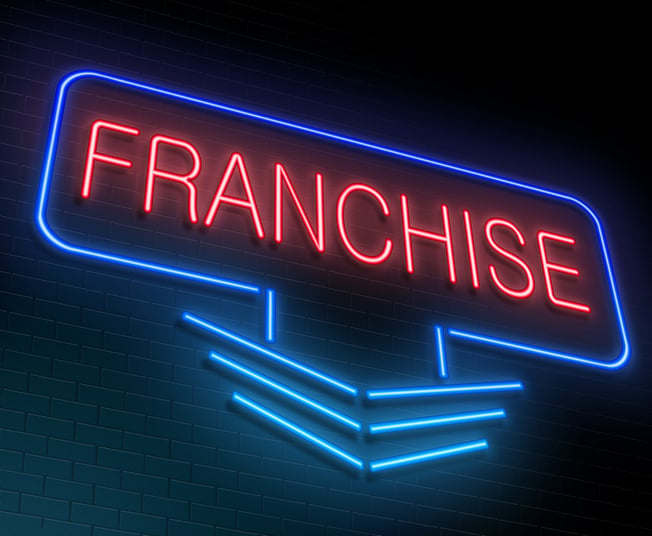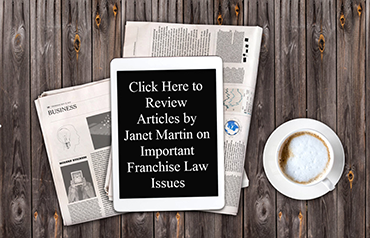Franchise FAQs
I have served as a franchise attorney in California, based in Orange County for more than 30 years. Here are some of the questions I am frequently asked:
Q – How much is this going cost me?
A – A lot less than any mistake that you will make by not consulting with me. I’ve been practicing in franchise law for more than 30 years, and I served as the in house counsel for an international franchisor with 8 subsidiaries more than 2 decades. I know both sides of this equation inside and out. If you’re looking for the lowest cost per hour I’m not your attorney. If you are looking for an experienced, seasoned professional who understands thoroughly what you are about to do, what the pitfalls are, and will guide you in a time efficient and cost effective manner, I’m your attorney.

Q – What’s the difference between the FDD and the Franchise Agreement?
A – The Franchise Disclosure Document (FDD) is a set of 23 disclosures called Items 1-23, the contents of which are mandated by the Federal Trade Commission. These disclosures describe specifically what the franchise you are purchasing is all about and the costs, other obligations and benefits, and information about the Franchisor and its obligations. It is not a contract. It is similar to a prospectus. Many states such as California have a additional disclosure language be included along with the required federal disclosures. Item 22 requires all contracts which the franchisor and franchisee will likely enter into be attached as exhibits. The Franchise Agreement is actually one of those contracts and is an exhibit to the FDD. However the Franchise Agreement is in fact, a stand alone document as well, and is THE contract that will govern the relationship of the parties. Other related contracts may be required by the Franchisor and are also attached as exhibits to the FDD.
Q – Can I change the terms of my agreement with the Franchisor?
A – California franchise laws are very strict and specific about how a franchisor and franchisee may “negotiate” the franchise agreement, at the beginning of the relationship. However, the burdens placed on franchisors by participating in such negotiated changes are in generally unacceptable to the franchisor. For example the franchisor must disclose the fact it negotiated changes in the past in its FDD, and must offer the same negotiated changes to other franchisees, and must also amend its FDD to disclose those negotiated changes, highly burdensome and highly time consuming and generally not to the franchisor’s benefit. Therefore most California franchisors will not enter into negotiated changes. Once the franchise is up for renewal there are different, more lenient options for negotiation of the renewal document.
Q – Do I need to incorporate or form some other business entity to operate my franchise?
A – It is generally advisable in any business venture that a separate entity be utilized for liability protection, but this is a personal decision depending on the nature of the business, and should be made with a tax advisor’s advice, taking into consideration the background and other asset holdings of the franchisee. There are some franchisors that mandate you form a separate entity and there are some franchisors that prohibit the franchisee from being an entity. Most will allow it as long as there is a personal guarantee from the owners. A California corporation or Limited Liability Company does require upfront costs and ongoing filings and tax obligations, which must be factored into the decision.
Q – Does my wife / husband / spouse have to sign this?
A – This is usually a franchisor based requirement, if it is required, not a legal requirement. Generally franchisors will want both spouses on the franchise agreement, even when one spouse only will be involved. This is generally true in community property states, such as California, and because franchisors want to have both parties obligated. However, this is probably one of the easier “requirements” a franchisor will give in if the franchisee makes it a deal breaker.

Q – What if I change my mind after I sign the agreement / Go to their “School” / Pay My Fee?
A – There is no “I changed my mind” provision in franchise agreements, and California franchise law doesn’t have any such provision either. Assuming there was no fraud involved, and assuming the franchisor has sold you the franchise legally, once you sign on you are obligated to perform, as is the franchisor. Further, once you go to “school” the franchisor has trained you and revealed all its proprietary secrets and confidential information, thereby solidifying the contract. Once you pay the franchise fee or other fees, generally you will only be entitled to a refund based on circumstances that are specifically outlined in the franchise agreement, for example if the franchisor deems you have failed school there may be an offer of some kind of refund, or if you do not qualify for some financing if that was a condition of your franchise approval. There is really no going back during any of these phases, unless you are willing to lose your investment paid. It is possible that extenuating circumstances will induce the franchisor to agree to mutually terminate the franchise agreement but this is highly unusual and very fact specific.


